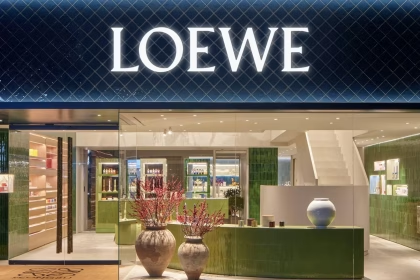German discount grocer Aldi is preparing to make its mark in the heart of Manhattan. The supermarket chain announced plans to open its first central Manhattan location in 2026 within The Ellery, a new 32-story luxury residential tower near Times Square.
A Flagship in Midtown’s Transformation
The store, slated for 312 West 42nd Street at the edge of Hell’s Kitchen and Times Square, will span 25,000 square feet. Aldi signed the lease in partnership with developer Taconic Partners and National Real Estate Advisors.
The move comes amid a wave of redevelopment in Midtown following the New York City Council’s adoption of Mayor Eric Adams’s Midtown South mixed-use rezoning plan. That initiative is expected to yield nearly 10,000 new apartments through office-to-residential conversions and ground-up construction.
“Opening our first store in the heart of Manhattan will be a significant milestone for Aldi as we continue to expand access to affordable, quality groceries in the most in-demand locations across the country,” Aldi Chris Daniels, Regional Vice President, said.
For developers, Aldi’s lease cements the company’s role in reshaping the Times Square neighborhood into a more residentially desirable destination.
Taconic Partners Senior Vice President George Tsapelas called the flagship “a major milestone in the transformation of the Times Square area into a premier residential destination.” He added that the chain is “an ideal neighborhood partner, offering the West Side a much-needed grocery store that will resonate with our residents and the community.”
A Growing New York Presence
Aldi currently operates one store in Manhattan, located in East Harlem, in addition to multiple stores across Brooklyn, Queens, the Bronx, and New Jersey. Nationally, Aldi operates more than 2,200 supermarkets in 39 states, ranking as the third-largest grocery chain by store count in the country. Worldwide, its footprint exceeds 7,200 stores.
This new Times Square location aligns with Aldi’s aggressive U.S. expansion plans. The company is on track to open more than 200 new stores this year alone, with a mid-term goal of reaching 800 additional locations by the end of 2028.
In recent years, Aldi has expanded into new states, including Nevada, with its first stores in Las Vegas earlier this year, and strengthened its U.S. presence by acquiring and converting rival supermarkets. Following its purchase of around 400 Winn-Dixie and Harveys Supermarket locations from Southeastern Grocers in 2024, Aldi plans to convert approximately 220 of those stores into its own banner by 2027.
The Ellery’s Retail Ambitions
The Ellery, designed by Handel Architects, is part of Midtown’s modernization. The 32-story tower features 330 fully leased residential units and more than 30,000 square feet of amenities, including a rooftop pool, fitness center, and coworking spaces.
The property’s retail program offers more than 44,000 square feet, of which 19,000 square feet of ground-floor frontage spanning 42nd to 43rd Street remains available for subdivision and leasing. Aldi’s flagship will anchor the project’s retail offerings while directly servicing both building residents and the wider Midtown community.
Aldi vs Lidl in the U.S. Market
Aldi’s announcement underscores the brand’s continued momentum in the U.S. market compared to its German rival Lidl. Lidl has undergone multiple leadership changes in recent years, with five different U.S. CEOs since its 2017 market debut. Its current chief, Joel Rampoldt, a former managing director at consulting firm AlixPartners, assumed the role in August 2023.
A New Chapter for Midtown Grocery Options
For central Manhattan residents, Aldi’s arrival represents more than national expansion; it provides access to affordable groceries in one of New York City’s most expensive neighborhoods. The move reflects Aldi’s strategy of blending suburban-style value with urban convenience, catering to a dense customer base of residents, office workers, and tourists.
As Times Square sheds more of its tourist-only reputation and welcomes new residential developments, Aldi’s flagship could play a pivotal role in shaping both the daily convenience of the neighborhood and its broader image as a livable, full-service community.
With one store already in Harlem, dozens spread across outer boroughs, and hundreds more planned nationwide, Aldi’s Midtown debut signals the grocer is intent on delivering on its long-standing promise: high-quality products at low prices, no matter the zipcode.

















